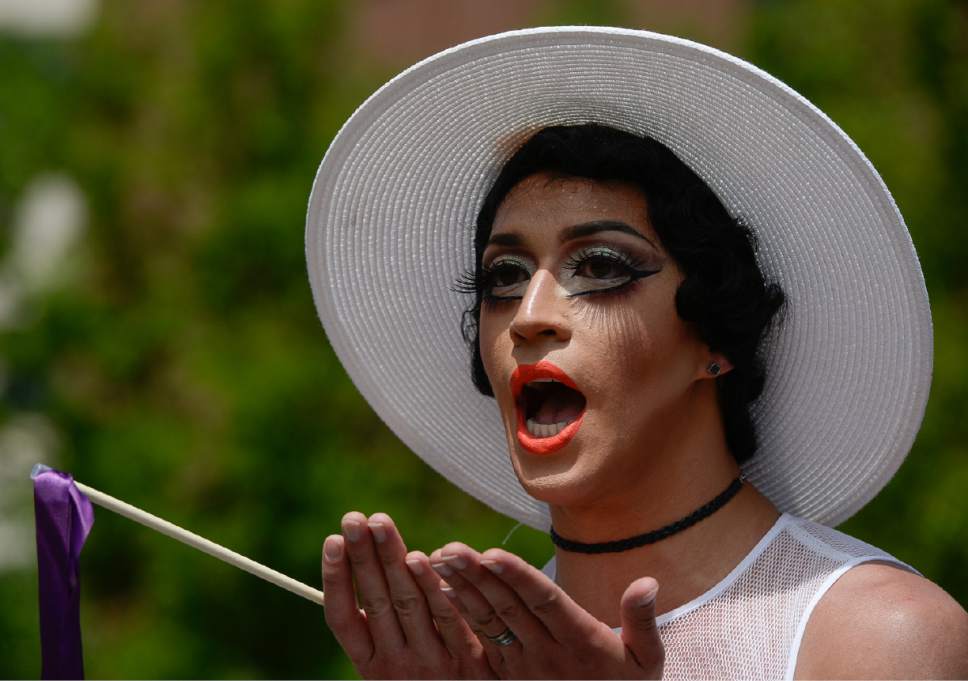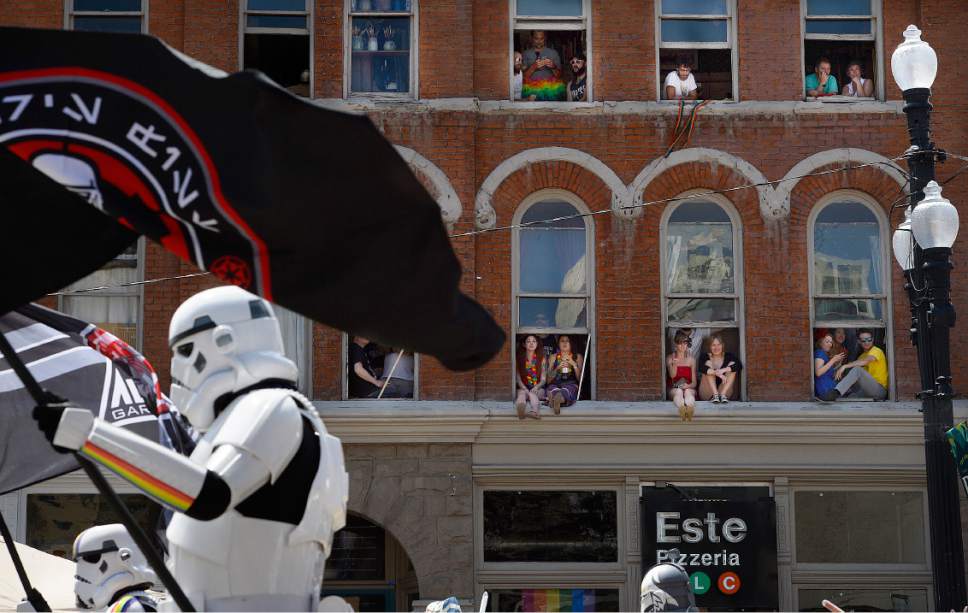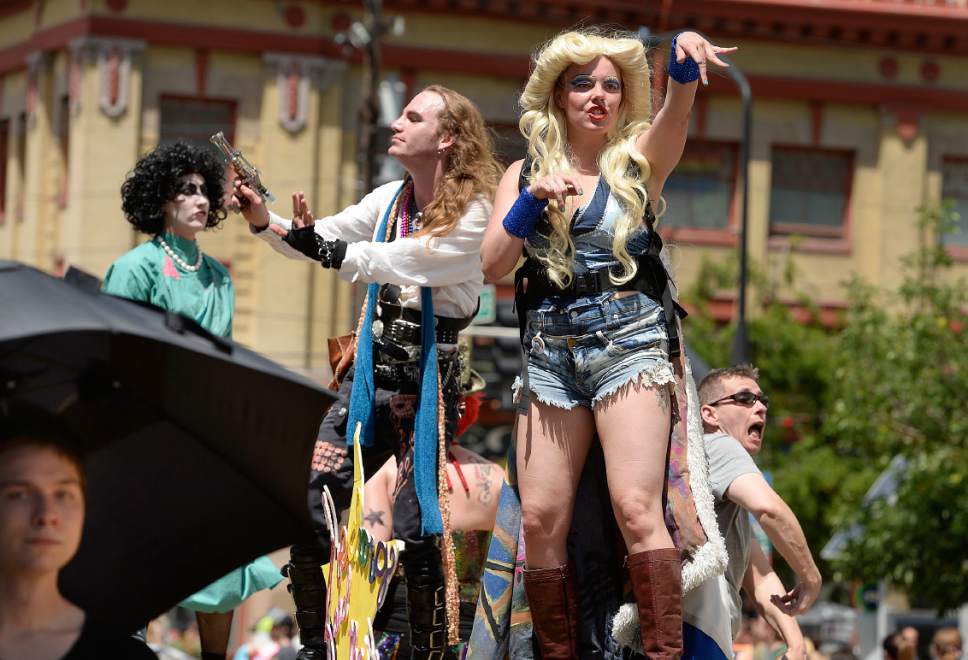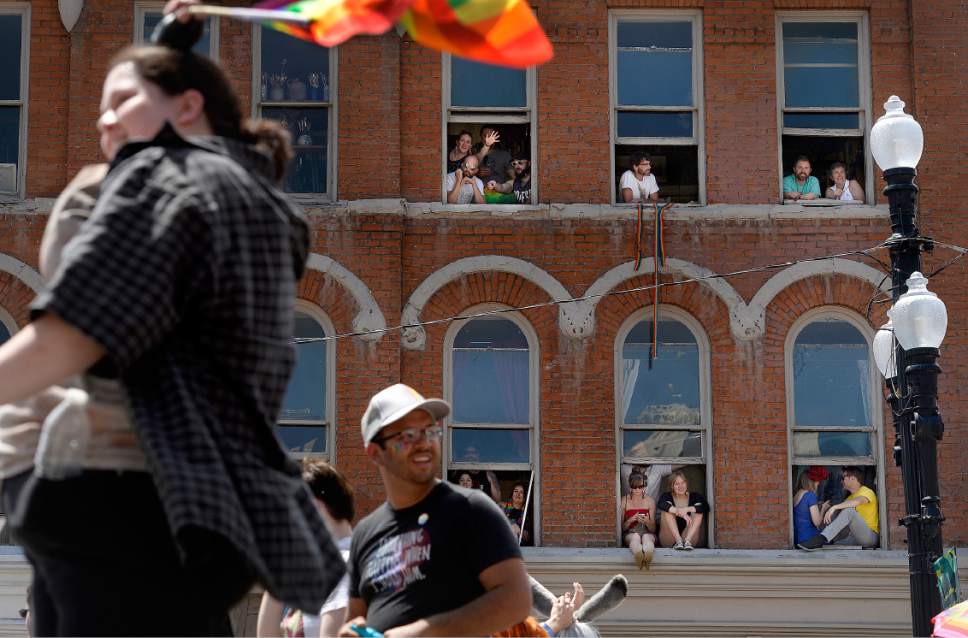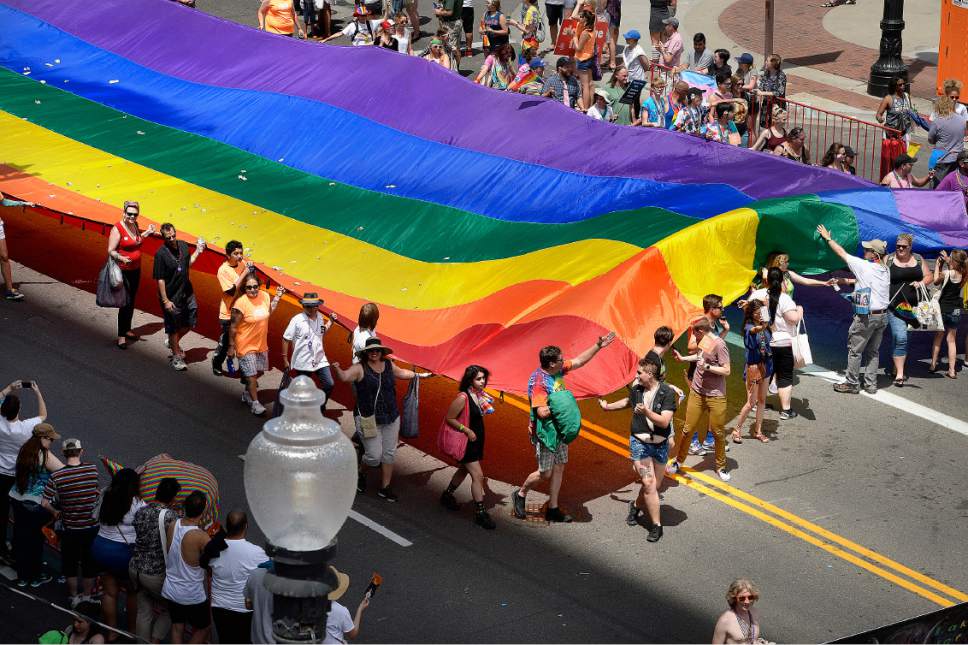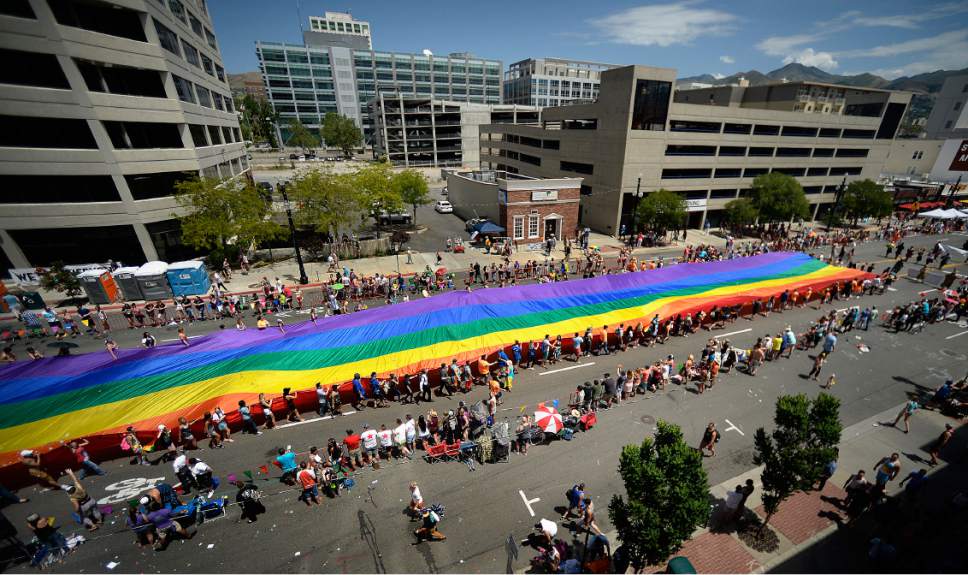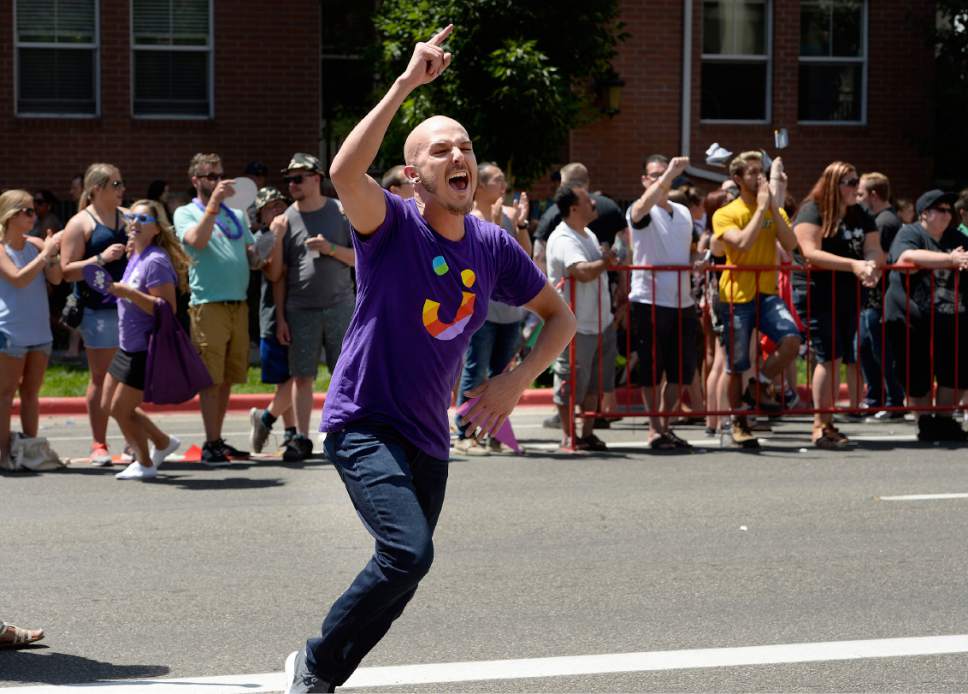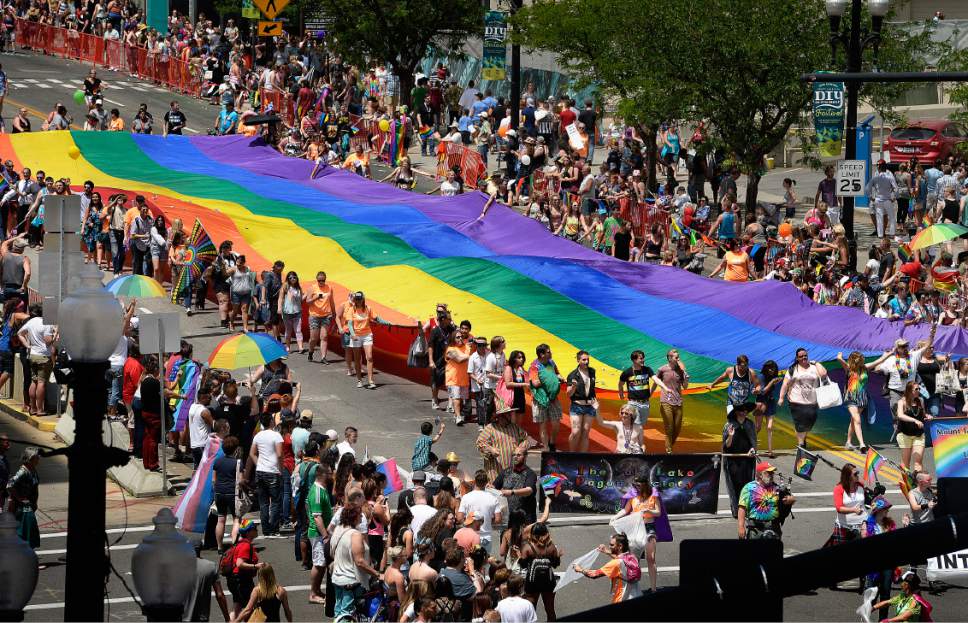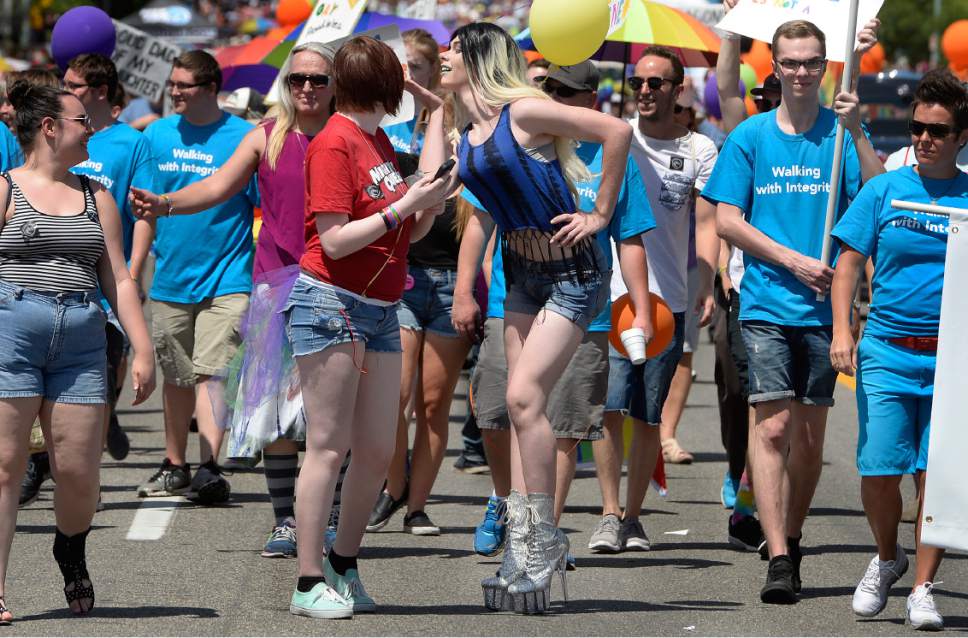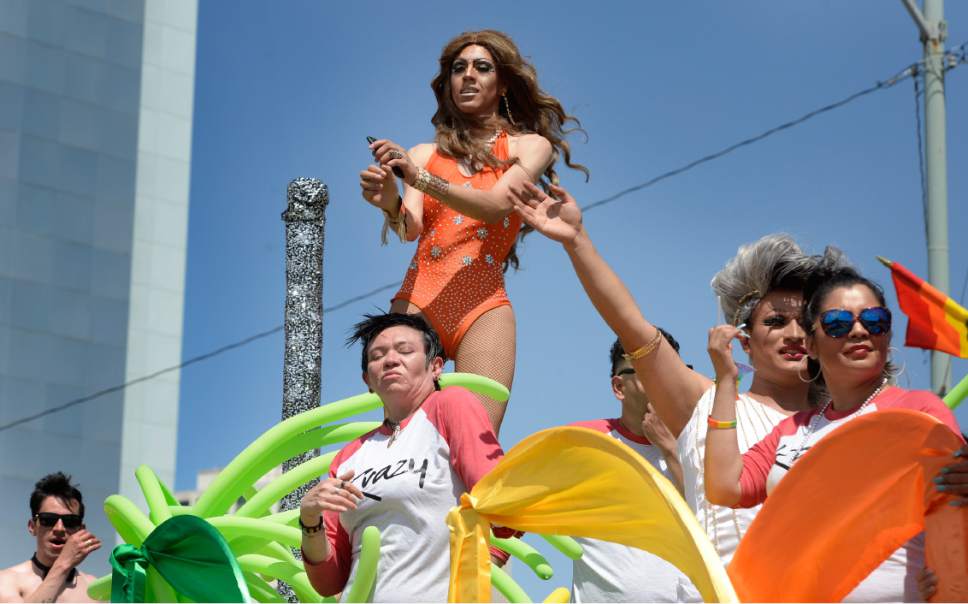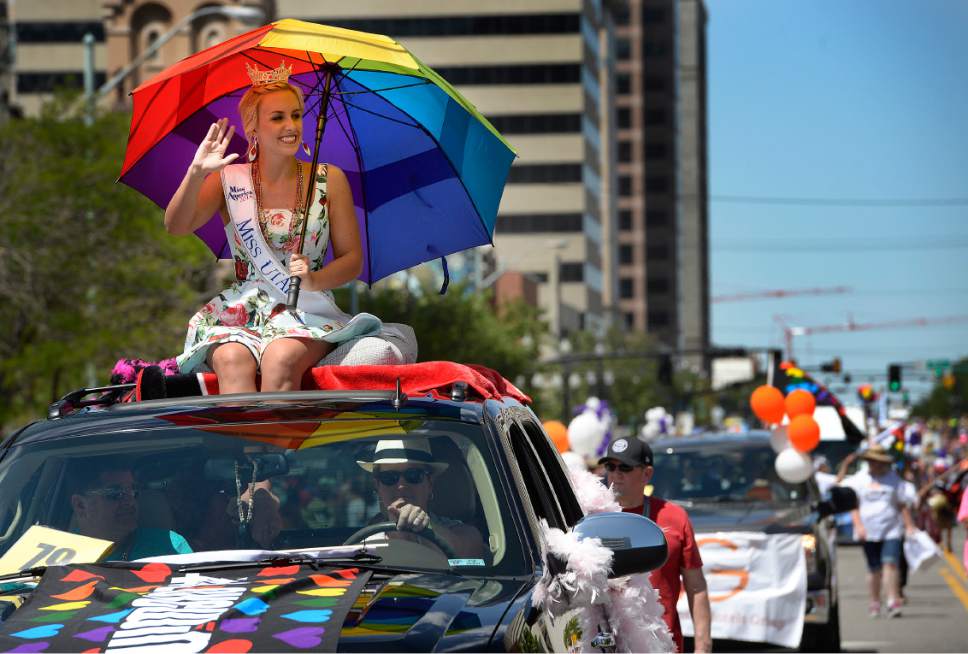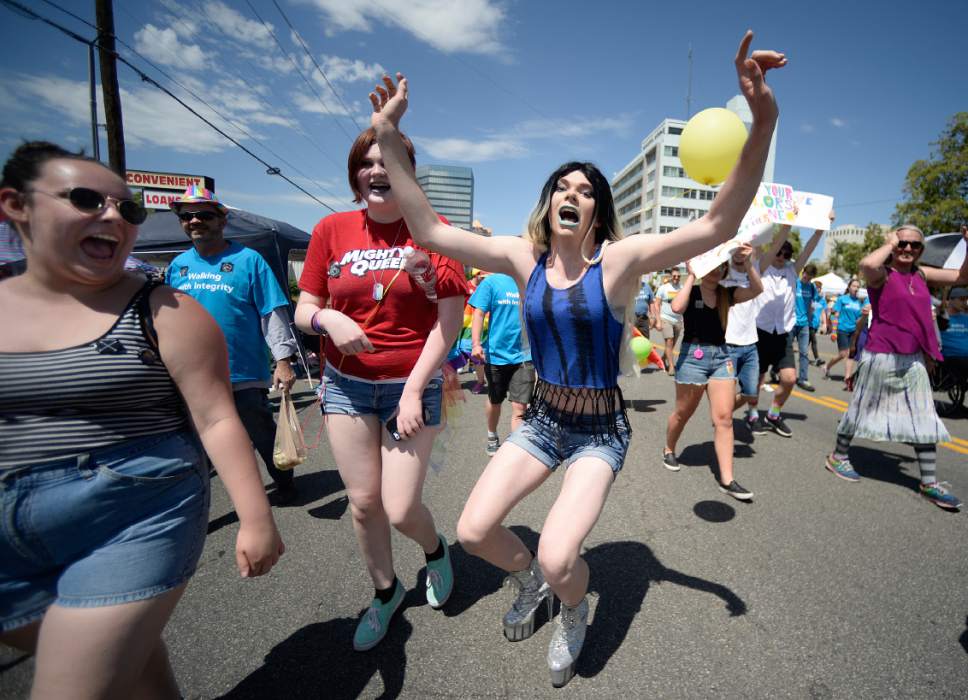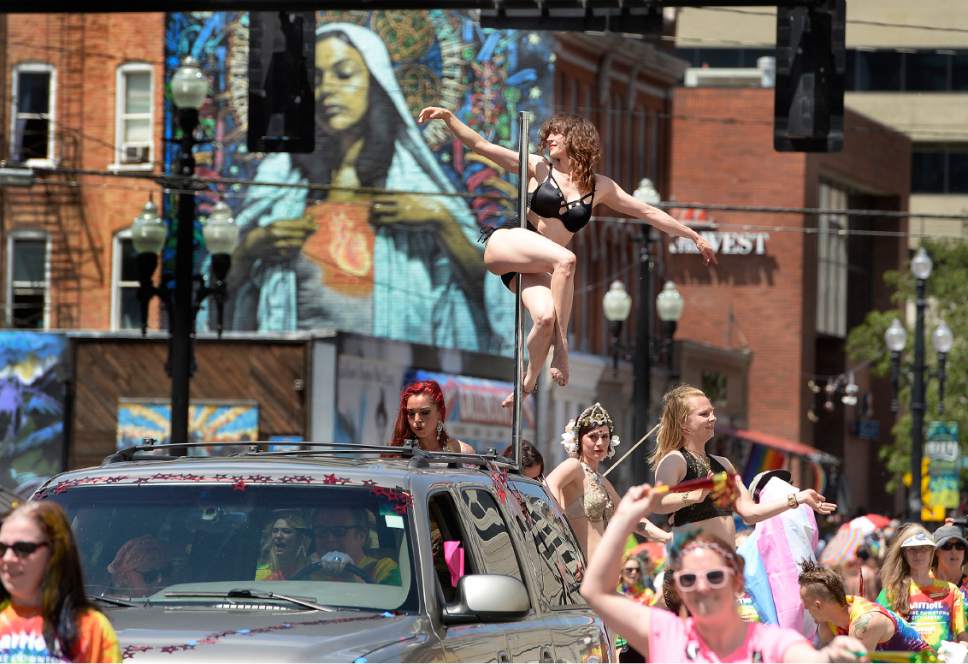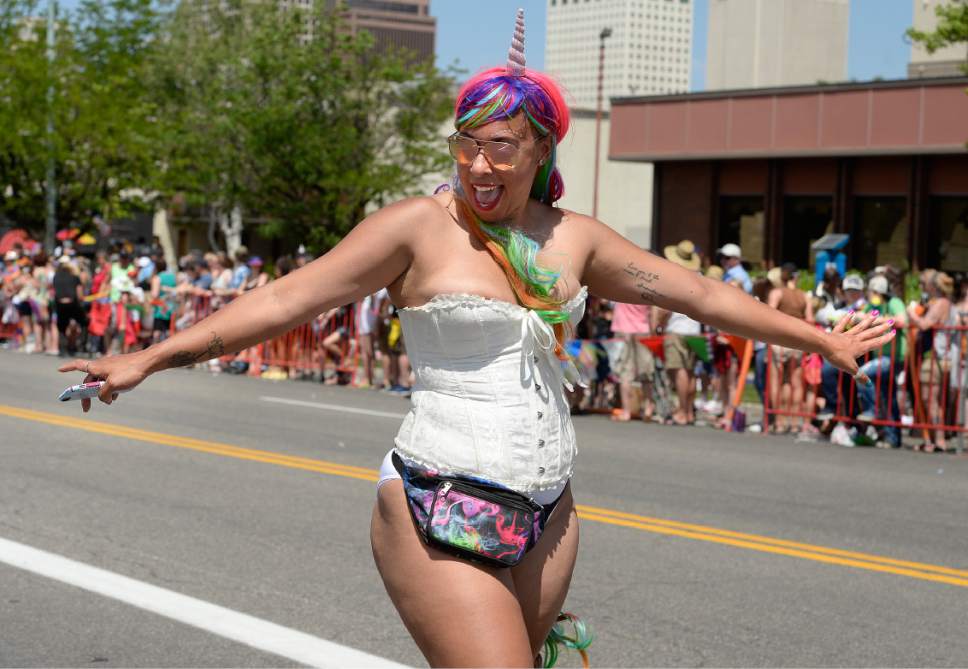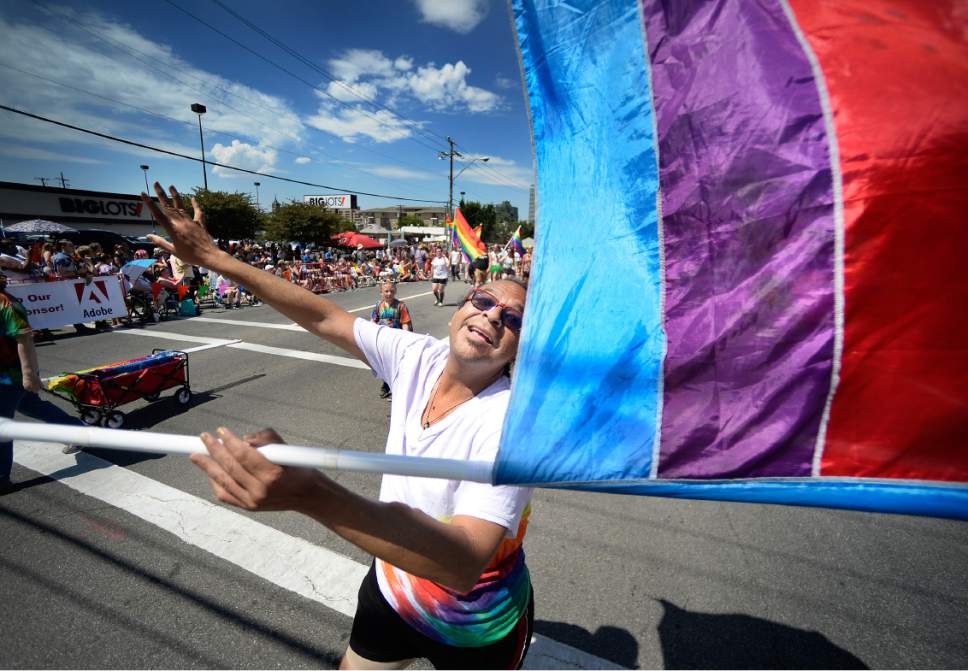This is an archived article that was published on sltrib.com in 2017, and information in the article may be outdated. It is provided only for personal research purposes and may not be reprinted.
As they marched in celebration and for acceptance, many in the LGBTQ community also felt a sense of urgency Sunday as thousands of people gathered in downtown Salt Lake City for the culmination of Utah Pride Week.
In fact, many participants in the 42nd annual Utah Pride Parade said they were looking beyond the event, trying to figure out what's next for the movement under President Donald Trump's leadership and amid vocal opposition from a group of protesters.
Many answers seemed to lead back to the theme of this year's festival — "Pride Elevated," a catchphrase some participants said encompasses the need for people within the LGBTQ movement to elevate new voices in the conversation.
Chris Wharton, an openly gay candidate for Salt Lake City Council District 3, said Pride is an important and visible reminder that Utah is not as homogenous as some may think.
In the future, he said, the visibility of other types of diversity will become more pronounced, even within Pride and the LGBTQ movement.
"The movement has been criticized for being too focused on the 'L' and the 'G' — the lesbian and the gay — and not enough on our bisexual community, our transgender community and our gender queer community," Wharton said. "More opportunities will come to be more inclusive of those other groups as well."
Piper Stewart, a Salt Lake resident and first-time Pride attendee, echoed the need for the movement to become more inclusive.
"It's really important that the LGBT community starts including and supporting more people of color and transgender people because, in the past, I think both of those groups have kind of been excluded," Stewart said.
Another group looking to enter the conversation is Affirmation — LGBT Mormons, Families & Friends, which provides support for people navigating the complexities of the LDS faith and their sexuality, according to John Gustav-Wrathall, the organization's president.
In November 2015, the Church of Jesus Christ of Latter-day Saints announced that children of parents in LGBTQ unions would be ineligible for a naming blessing, baptism or mission call without the approval of the faith's top leaders. Affirmation members hope to support those families and enact change by sharing their stories with church leaders and other Utahns.
"The policies of the church, those are always the things that change last," he said. "They can't just change the policy overnight. That's not going to happen. But as [church leaders] continue to get more information and they hear people's stories and they begin to get deeper into the discernment, I think that's when good things start to happen."
Though Gustav-Wrathall said he's seen a "grassroots groundswell of support" from within the LDS Church, not all religious groups are ready to accept people they feel ignore the word of God.
That includes Street Preachers, about a dozen members of which protested at the parade with signs evoking the fear of God and hell.
Eddie Blastus said he traveled from Washington state to take a stance against "the homosexual agenda" in Salt Lake City and beyond.
"The way [the LGBT community] cram their stuff down our throat, we're going to cram the Gospel down their throat," he said. "It's time to fight back. We have a new sheriff in town, and his name is Donald Trump."
Although Trump has publicly said he "will do everything" to safeguard LGBT communities from violence, some Pride attendees said they don't feel their rights will be protected under his presidency.
"We're worried right now that the current administration [will start] taking away rights that we fought so hard for: marriage equality, discrimination in workplace and living," ACLU volunteer Diane Keech said.
Those fears, some attendees said, are why this year's Pride parade is particularly important.
"It's great that we have this day to laugh and to celebrate, but the work that needs to be done is serious and it's happening right now," said Leah Weisgal, a community organizer with Planned Parenthood. "It's important not just to be out celebrating today but to make sure that you're turning out tomorrow for all of our family in the movement — especially our queer brothers and sisters of color."
Twitter: @tstevens95


